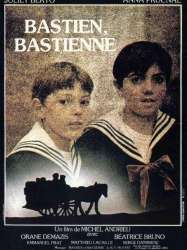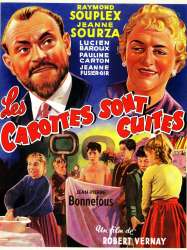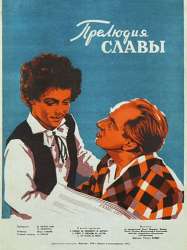Films with theme "Enfant musicien", sorted by revenue

Shine (1996)
, 1h45Directed by Scott Hicks
Origin Australie
Genres Drama, Biography, Musical
Themes Films about children, Medical-themed films, Seafaring films, Films about music and musicians, Transport films, Films about classical music and musicians, Musical films, Piano, Films about psychiatry, Enfant musicien
Actors Geoffrey Rush, Noah Taylor, Armin Mueller-Stahl, John Gielgud, Lynn Redgrave, Nicholas Bell
A man (Geoffrey Rush) wanders through a heavy rainstorm finding his way into a restaurant. The restaurant's employees try to determine if he needs help. Despite his manic mode of speech being difficult to understand, Sylvia learns that his name is David Helfgott and that he is staying at a local hotel. She returns him to the hotel and despite his attempts to engage her with his musical knowledge and ownership of various musical scores, she leaves.

Midnight Sun (2018)
, 1h31Directed by Scott Speer
Origin USA
Genres Drama, Romance
Themes Films about children, Medical-themed films, Films about music and musicians, Films about cancer, Enfant musicien
Actors Bella Thorne, Patrick Schwarzenegger, Rob Riggle, Quinn Shephard, Quinn Shephard, Tiera Skovbye
Katie Price est atteinte d'une maladie appelée xeroderma pigmentosum (XP). Cette infirmité l'oblige à rester enfermée chez elle le jour car le soleil lui est néfaste ; elle n'est donc autorisée à sortir que la nuit. Son amie d'enfance, Morgan, passe la voir tous les soirs pour lui consacrer du temps. Depuis son enfance, elle est amoureuse de son voisin Charlie, qu'elle voit tous les jours depuis sa chambre, puisque ce dernier passe à côté de chez elle lorsqu'il va en cours ou à la piscine.

Together (2002)
, 1h56Directed by Chen Kaige
Genres Drama
Themes Films about children, Films about music and musicians, Films about classical music and musicians, Musical films, Enfant musicien, Violon
Actors Liu Peiqi, Chen Kaige, Wang Zhiwen, Kim Hye-ri, Yuan Quan, Fu Biao
Liu Cheng (Liu Peiqi) is a widowed cook making his living in a small southern town in China. His thirteen-year-old son, Liu Xiaochun (Tang Yun), is a violin prodigy. In the hope that Xiaochun might find success as a violinist, Liu Cheng and Xiaochun travel to Beijing to participate in a competition organized by the Children's Palace, an arts institution for school children. Even though Xiaochun emerges fifth, he is denied admission into the conservatory as he does not have Beijing residency. Determined to realize his hopes for Xiaochun, Liu Cheng persuades Professor Jiang (Wang Zhiwen), a stubborn and eccentric teacher from the Children's Palace, to take Xiaochun as a private student.

The Red Violin (1998)
, 2h20Directed by François Girard
Origin Italie
Genres Drama, Thriller, Musical, Romance
Themes Films about children, Films about music and musicians, Politique, Films about classical music and musicians, Musical films, Political films, Enfant musicien, Violon
Actors Samuel L. Jackson, Colm Feore, Monique Mercure, Irene Grazioli, Don McKellar, Sylvia Chang
The film frames the history of the "Red Violin" around a Canadian auction in 1997, where the violin is at the centre of multiple bids by interested parties, and a tarot card reading in 1681, where a violinmaker's wife has her future read for herself and her unborn child (and, by extension, that of the violin).

The Piano Forest (2007)
, 1h41Directed by Masayuki Kojima
Genres Drama, Musical, Animation
Themes Films about children, Films about music and musicians, Piano, Enfant musicien
Actors Aya Ueto, Mayuko Fukuda, Chizuru Ikewaki, Rica Matsumoto, Hiroyuki Miyasako, Atsuko Tanaka
Shûhei Amamiya est un garçon de bonne famille dont le rêve est de devenir un grand pianiste, comme son père. Un jour, il déménage de Tokyo pour aller vivre quelque temps chez sa grand-mère malade. Là, il y rencontre Kaï Ichinose, un jeune garçon issu d'une famille pauvre et devient son ami. Dans leur classe, pour être respecté, il faut aller jouer d'un piano abandonné dans la forêt et que l'on dit cassé. Kaï, qui se dit propriétaire du piano, se révèle être le seul à pouvoir en jouer et est de surcroît très doué. Cette rencontre marque le début de l'apprentissage du piano entre deux enfants talentueux : l'un fils de bonne famille, l'autre, enfant des rues mais ayant en commun une passion : le piano. Tous deux se préparent et participent à un concours musical, montré à la fin de ce dessin animé, dont le morceau imposé est la Sonate pour Piano n°8 K.310 de Wolfgang Amadeus Mozart.

Tokyo Sonata (2008)
, 1h59Directed by Kiyoshi Kurosawa
Origin Japon
Genres Drama
Themes Films about children, Films about families, Seafaring films, Films about music and musicians, Transport films, Piano, Enfant musicien
Actors Teruyuki Kagawa, Kyoko Koizumi, Kanji Tsuda, Igawa Haruka, Kōji Yakusho, Kai Inowaki
Tokyo Sonata is about a middle-class family in Tokyo, the Sasakis, which consists of Ryūhei Sasaki, his wife Megumi, and their two sons Takashi and Kenji.

Mozart's Sister (2010)
, 2hDirected by René Féret
Origin France
Genres Drama, Biography
Themes Films about children, Films about music and musicians, Films about sexuality, LGBT-related films, Transgender in film, Films about classical music and musicians, Musical films, Enfant musicien, LGBT-related films, LGBT-related film, Cross-dressing in film
Actors Marie Féret, Marc Barbé, Delphine Chuillot, David Moreau, Clovis Fouin, Dominique Marcas
During the Mozart family grand tour, a cracked carriage axle forces Leopold Mozart, his wife Anna, 14-year-old Nannerl and a rambunctious 11-year-old Wolfgang to seek shelter in the nearby Fontevraud Abbey. There Nannerl develops a friendship with 13-year-old Princess Louise of France, who is being brought up in the Abbey, along with two of her sisters. This leads to an encounter at Versailles with her brother, Louis, Dauphin of France. Nannerl, an accomplished harpsichordist and singer who helps support the family as part of a brother - sister act, yearns to compose music and play violin, but her father, Leopold, forbids it. The young, but recently widowed Dauphin takes an interest in her and her music that edges toward romance. But he breaks off the relationship when he becomes engaged to Maria Josepha Amalia of Saxony. Princess Louise enters a convent and urges Nannerl to stay away from the Dauphin who is struggling to avoid the debauchery of his father, King Louis XV. A bizarre final encounter with the Dauphin and his new wife ensues. Nannerl and Princess Louise reflect on how their fates would have differed had they been born male.

Bastien, Bastienne (1979)
, 1h45Directed by Michel Andrieu, Jacques Kébadian
Origin France
Genres Drama
Themes Films about children, Films about music and musicians, Musical films, Enfant musicien
Actors Juliet Berto, Anna Prucnal, Orane Demazis, Béatrice Bruno, Jacques Chailleux
Dans une grande propriété à la campagne ne vivent que des femmes et des enfants. Les maris sont soit morts, soit au front. La période troublée exacerbe les relations entre les deux belles sœurs, Catherine et Suzanne, qui ne s'aiment guère, les servantes tendent de calmer les disputes. Pendant ce temps, leurs fils respectifs, les trois garçons Yves, Éric et Jean-Charles, insouciants, entreprennent de monter une représentation de l'opéra de Mozart Bastien et Bastienne. Mais le front se rapproche, et bientôt, comme les gens du village, ils devront tous quitter la grande maison.

The Sparrows of Paris (1953)
, 1h30Directed by Maurice Cloche, Jean-Pierre Decourt
Origin France
Genres Drama, Comedy, Comedy-drama
Themes Films about children, Films about music and musicians, Musical films, Enfant musicien
Actors Jean-Pierre Aumont, Louis de Funès, Max Elloy, Robert Lombard, Philippe Olive, Paul Demange
Impresario Mr Smith and his daughter want to engage a group of French musicians. On this occasion Peggy Smith wears a necklace with a locket. One of the musicians identifies the locket as property of his grandmother. When Ms Smith insists on keeping it, the musician calls for his ancestors and the reborn French elite soldier Césarin answers.

The Call of Destiny (1953)
, 1h40Directed by Georges Lacombe
Origin France
Genres Drama, Comedy, Comedy-drama
Themes Films about children, Films about music and musicians, Films about classical music and musicians, Enfant musicien
Actors Jean Marais, Jacqueline Porel, Renée Devillers, Georgette Anys, René Brun, Édouard Delmont
Au cours d'une tournée, le jeune chef d'orchestre prodige Roberto Lombardi rencontre son père Lorenzo qu'il n'a jamais connu : celui-ci, pianiste renommé, avait quitté le domicile familial et sombré dans l'alcoolisme. Grâce aux efforts de Roberto et de sa mère, Lorenzo retrouvera sa famille.

The Carrots Are Cooked (1956)
, 1h28Directed by Robert Vernay
Origin France
Genres Comedy
Themes Films about children, Films about music and musicians, Enfant musicien
Actors Jane Sourza, Raymond Souplex, Lucien Baroux, Pauline Carton, Jeanne Fusier-Gir, Robert Pizani
Le jeune Edmond Boyer, âgé de 12 ans, est un enfant prodige, jeune chef d'orchestre dont les parents organisent tout pour lui assurer une carrière. Ils vont même jusqu'à se faire passer aux yeux de tous pour des Russes et ont rebaptisé leur fils Ded Boyeski.

Prelude to Glory (1950)
, 1h35Directed by Georges Lacombe, Denys de La Patellière, Claude Boissol
Origin France
Genres Drama
Themes Films about children, Films about music and musicians, Films about classical music and musicians, Musical films, Enfant musicien
Actors Paul Bernard, Louise Conte, Robert Pizani, Jean Debucourt, Madeleine Barbulée, Charles Blavette
Roberto, un jeune garçon de 10 ans, est attiré par la musique. Un vieil organiste découvre ses dons, et commence son éducation musicale qui le conduira jusqu'à la tête d'un orchestre.

An Impudent Girl (1985)
, 1h36Directed by Claude Miller, Bruno Herbulot, Claude Othnin-Girard
Origin France
Genres Drama, Comedy, Comedy-drama, Musical
Themes L'adolescence, Films about children, Films about music and musicians, Le thème des vacances, Piano, Enfant musicien
Actors Charlotte Gainsbourg, Bernadette Lafont, Jean-Claude Brialy, Julie Glenn, Jean-Philippe Écoffey, Philippe Baronnet
Charlotte Castang is a working-class 13-year-old girl, who lives in a drab, run-down neighbourhood, and is ready to become an adult. She has been raised without a mother, and lives with her crass brother and her father, whose attention is elsewhere. Her only friend is Lulu, a sick 10-year-old pest she would like to be rid of. Charlotte is bored and dreams of a better life, and her life improves when she meets Clara Bauman, a pianist from the other side of the tracks, whom she admires. Charlotte wants to be friends with Clara, whom she sees as her ticket out of the area, while the sophisticated Clara jokingly suggests that Charlotte should become her manager.

Vitus (2006)
, 2h2Directed by Fredi Murer
Origin Suisse
Genres Drama, Musical
Themes Films about children, Films about music and musicians, Musical films, Piano, Enfant musicien
Actors Teo Gheorghiu, Bruno Ganz
Vitus, played by Teo Gheorghiu, is a highly gifted pianist at the age of 12. His parents mean well, but are over-protective, so Vitus rebels and seeks refuge with his grandfather (Bruno Ganz), who loves flying. After faking a head injury, Vitus secretly amasses a fortune on the stock market. The money allows his grandfather to purchase a Pilatus PC-6 and his father to return triumphantly to the company that had fired him previously. Vitus pursues his former babysitter, Isabel, but she prefers someone older and does not return his affections.

The Foster Boy (2011)
, 1h47Directed by Markus Imboden
Origin Suisse
Genres Drama
Themes Films about education, Films about children, Films about music and musicians, Films about sexuality, Rape in fiction, L'enfance marginalisée, Films about child abuse, Enfant musicien
Actors Katja Riemann, Max Hubacher, Miriam Stein, Andreas Matti, Ursina Lardi
Dans les années 1950, un adolescent orphelin quitte le foyer dans lequel il est élevé pour être placé dans une famille de fermiers qui reçoit de l'argent en compensation de son accueil. Il passe des moments difficiles dans cet environnement dur et voit arriver un peu plus tard une jeune fille un peu plus jeune que lui et qui est placée là parce que sa mère ne peut plus subvenir à ses besoins et à ceux de ses deux petites sœurs. Le jeune homme est passionné de musique et joue remarquablement de l'accordéon. Un jour, après avoir entendu à la radio un morceau de bandonéon argentin, il rêve de quitter cet environnement, dans lequel on le traite comme un animal, pour aller en Argentine, là où la vie lui semble plus facile. La fille est du même avis et rêve de partir avec lui.
 Connection
Connection